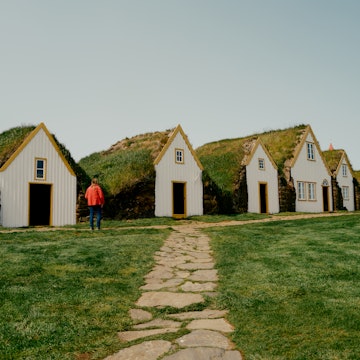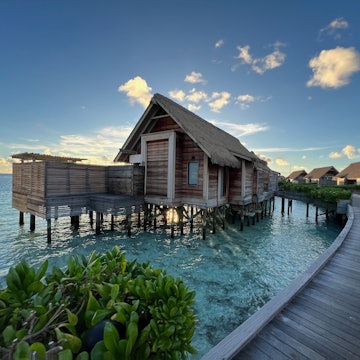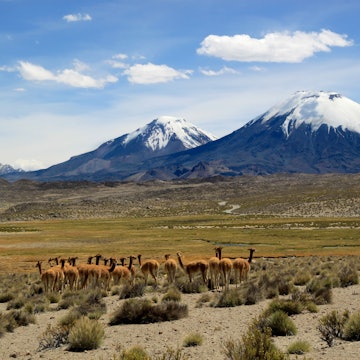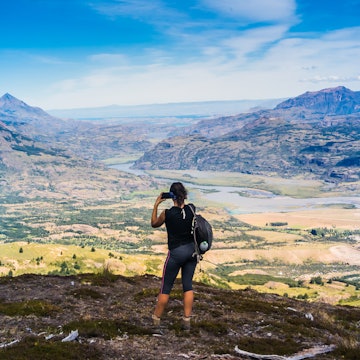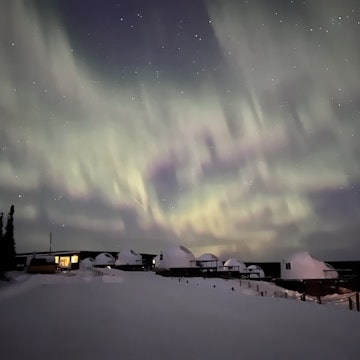

It's been a rough couple of months. With escalating fears concerning the global spread of COVID-19, there's a high probability you're feeling more stressed than a blind surgeon in a busy ER unit. If that's the case, planning an off-grid getaway for the future may be just what the doctor ordered.
Scientists have found that a little one-on-one time with the woods effectively reduces the body's production of the stress hormone cortisol. Chronic stress, which results in elevated cortisol levels, can lead to serious health problems like depression and high blood pressure – the last thing anyone needs to deal with during these intense times.

So, while it's critical we all follow safety suggestions like social distancing and non-travel recommendations from agencies like the CDC, it's also essential to consider a self-care escape once this whole thing blows over.
As soon as we get the greenlight to explore the world once more, use one of these remote vacation ideas to find calm amidst the coronavirus-induced chaos of our times.

1. Book a cabin in a remote location through Airbnb
If your home quarantine is resulting in a profound case of cabin fever, planning an actual cabin retreat will give you something soothing to anticipate. When it's finally time to go, opting for one of these remote forest abodes on Airbnb will give you the freedom to wander the woods outside your four walls without worry. Airbnb's current extenuating circumstances policy covers the costs of both hosts and guests affected by COVID-19, giving travelers peace of mind should their plans go awry in the coming months.
If you're desperate to ditch the ding of your digital devices, try this cabin tucked away on Kenai Lake near Seward, Alaska. Without electricity or cell service, there's no chance of a news alert spoiling your serenity.
For those who want to be closer to civilization, this cabin, an hour's drive outside of Ljubljana, Slovenia, is a fairytale fortress overlooking the Kamnik-Savinja Alps.

2. Pitch a tent in a park
If stress is disrupting your sleep schedule, a camping trip is the prescription-free sleeping pill you need. Scientists at the University of Colorado Boulder found by readjusting our internal alarm clocks to match the sun, we can reconnect with our natural circadian rhythms to wake up and fall asleep at more reasonable hours. Speaking of sun, increased exposure to sunlight and fresh air can promote feelings of positivity by boosting serotonin levels. The best part? You don't have to be a billionaire to cash in on the benefits.
Whether it's backpacking through the snow-capped peaks of Jasper National Park in Canada ($16.05 per night), or hanging a hammock between two mangroves on Playa Flamenco in Puerto Rico ($30 per night), camping is a cost-effective way to travel the world while practicing stress management.
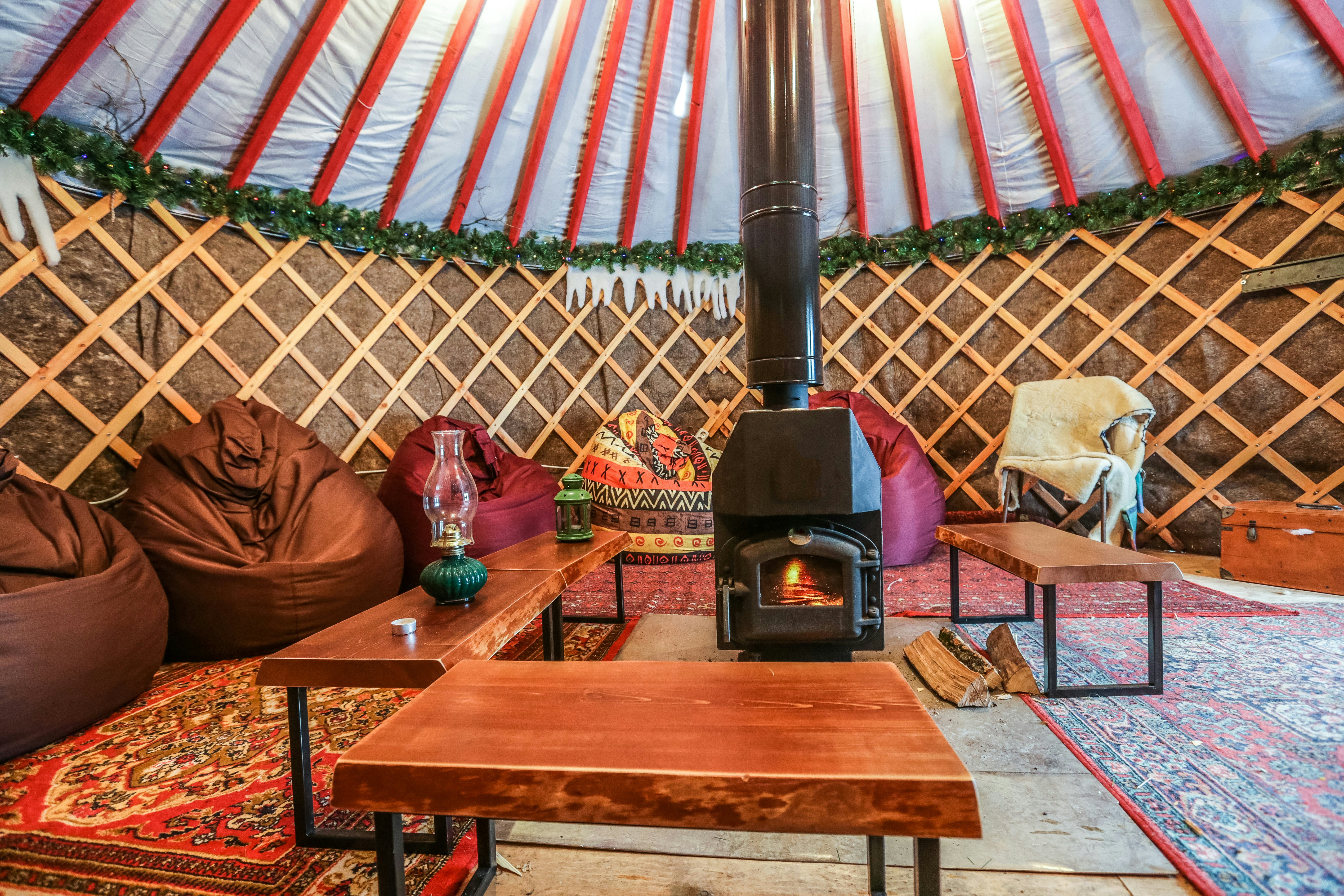
3. Make camping glamorous
You don't have to go Wild-style like Cheryl Strayed to experience the joys of camping. Glamping, the outdoor getaway that mixes grit with glamour, offers travelers an opportunity to go natural without sacrificing the creature comforts of home.
For mountain maniacs, check out the WiFi-free EcoCamp in Torres del Paine National Park, Chile. The 13 geodesic domes that comprise the camp – all equipped with full bathrooms and wood-burning stoves – look out onto Patagonia's iconic craggy cliffs. The price of lodging includes guided treks, kayak trips, and a warm bed once it's time to hit the hay.

4. Get a camper and hit the road
Millions of people are now telecommuting to work from a home office, and if you’re one of them, think about renting a camper and taking your job on the road. As long as there's a secure Wi-Fi connection, an RV can turn a stuffy desk job into an endless adventure.
With 14 national parks that boast active volcanoes, glacial mountains, immaculate beaches, and enough ecological diversity to make your head spin, New Zealand is the prime candidate for a camper workation. Wilderness, a motorhome rental company, offers guides and itineraries to help travelers see as much of the countryside as possible.

5. Book a hotel room in one of the world's most remote towns
When a few miles from civilization is still too close for comfort, try seeking solitude in two of the world's most isolated locations inhabited by humans – Pitcairn and Ittoqqortoormiit.
To reach Pitcairn, a tiny Pacific island 5879km off the coast of Peru, travelers must fly to French Polynesia and then set sail for two nights aboard a cargo freighter that runs infrequently. If you're willing to plan the complicated journey, it's well worth the trip – the island's verdant volcanic-rock scenery is just as inviting as the 50 people who call it home.
The mightiest SUV would be SOL on the frigid fjord terrain to Ittoqqortoormiit, Greenland (population: 450), and as no commercial flights land in town, all visitors must arrive by helicopter. The picturesque area justifies the long haul it takes to visit – a series of Crayola-colored A-frame homes dot the town's neutral-toned landscape like flowers in a frozen field.

6. Rent an entire island for yourself and some friends
Traveling to far-flung locales may not be realistic for many, but renting a private island can be surprisingly affordable and equally effective for finding seclusion. Guests live worry-free like the Swiss Family Robinson in this quaint red cottage for 5, located in Hvaler, Norway ($198 per night). After taking a motorboat to the island, visitors are all alone, save for a handful of board games, books, and the sound of small waves lapping at the rocky island's shores. For more island rental opportunities, check out Private Islands Inc.'s international options.

7. Cycle through or take a walk in an urban park
For city dwellers around the world, finding the time and money to escape home life isn't always possible, but that doesn't preclude them from spending time in nature. Urban parks provide a substantial respite for people surrounded by steel and cement, and according to a study led by Japanese researcher Yoshifumi Miyazaki, it only takes 15 minutes in a green space to significantly decrease cortisol levels. On top of helping us decompress, outdoor elysiums like Vancouver's Stanley Park and Berlin's Tiergarten improve the quality of the air we breathe. After being cooped up due to recent events, there's no better time to visit a bucolic urban backdrop, take a deep inhale, and let the power of nature start to work its magic.
You might also like:
The best board games for travel lovers
How to find great running routes wherever you are
Start dreaming of your next adventure with the best new travel books
The novel coronavirus (Covid-19) is now a global pandemic. Find out what this means for travelers.








